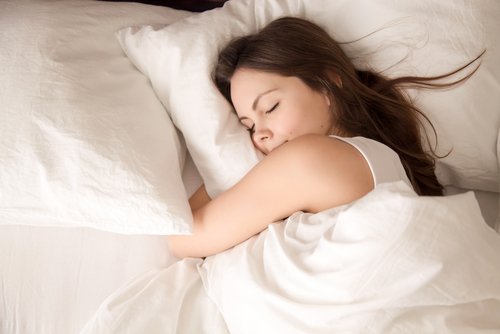The lack of decent sleep can literally take the life out of us. If you have ever interacted with someone who hasn’t been sleeping well, there’s a huge chance that that person looks physically exhausted. Or perhaps, you have been that person yourself. While it is true that lifestyle is a huge contributing factor to our quality of sleep, there’s also a chance that we might be suffering from sleep disorders. Unfortunately, the longer we let this go on, the harder it will be for us to live a healthy and fulfilling life. Are You Sleep Deprived? Sleep deprivation is simply the act of getting way less sleep than you need to. It is usually a chronic condition that leads to drowsiness, mental exhaustion, emotional issues, loss of focus, and even obesity. When left unresolved, it makes people more likely to suffer from depression and anxiety. If you are wondering whether your everyday tiredness and poor performances are caused by sleep deprivation, listed below are its most common symptoms:
- Forgetfulness
- Frequent yawning
- Inability to concentrate
- “Inexplicable” fatigue
- Loss of coordination or clumsiness
- Mood swings and irritability
- Reduced libido or sex drive
- Weight gain
These symptoms may not mean much when viewed individually, but if you are suffering from most or all of these, then you know you have to work on your sleeping habits. If a simple change in sleeping patterns doesn’t work, a more comprehensive sleep treatment plan may be necessary. Hypnosis and Sleep One of the methods applied in sleep recovery is sleep hypnosis. Although hypnosis is typically performed by a trained hypnotherapist, self-hypnosis is also possible by listening to recordings. The process starts by using the power of suggestion to bring the listener into a state of trance. Listed below are some reasons why people turn to hypnosis for better sleep:
- It Helps the Listener Relax
Since hypnosis brings a listener to a trance-like state, it makes it easy for anyone to feel relaxed and at peace. Depending on a person’s suggestibility and receptiveness, the effects of hypnosis may come quickly, or it may take a while before the “suggestions” work. Sometimes, when you listen to it long enough, you may even forget that you’re listening in the first place—because, finally, it felt so easy to fall asleep.
- It Reduces Anxiety Levels
The voice, the words, and the background music are all put together in a way that will help the listener mentally get into a calm place. If you are feeling highly anxious, hypnosis can provide a mental environment that can make you gradually forget about the things that you’re worried about. It may not happen instantly, but once your ears are filled with nothing but calmness, your mind has a high chance of following suit.
- It’s a Good Supplement for Other Sleep Correction Methods
Depending on the sleep problems that you’re dealing with, your therapist may prescribe a few methods that can help improve your sleep quality. For example, you may be advised to change your sleep hygiene, take sleeping pills, or undergo cognitive behavioral therapy (CBT). Since you can do hypnosis by yourself, it is convenient enough to use together with your therapist’s suggested methods. There are a lot of available apps (e.g. Headspace, Harmony Hypnosis) and YouTube channels (e.g. Michael Sealey, Lina Grace) that feature hours-long videos worth of sleep hypnosis. Surely you’re bound to fall asleep listening to one of those.
- It Induces Deep Sleep
Among the different kinds of sleep, deep sleep is considered the most restorative. More time in this state means that the sleeper is more likely to wake up feeling refreshed in the morning. Because of the ability of hypnosis to pull the listener into a relaxed state, it also helps increase their chances of going into a deep sleep. This usually occurs when the sleeper falls asleep with far less worries on their mind. A study suggests that hypnosis doesn’t only increase the amount of deep sleep a person can have, but also the quality of their sleep. Conclusion: Hypnosis for Sleep Can be Worth a Try! Hypnosis can be a promising sleep treatment method, especially for people who are highly suggestible. Although not a lot of medical studies have been done regarding its benefits for sleep issues, the few ones that have been published suggest that it is worth trying out. If you are having trouble falling asleep, hypnosis may be able to help you forget about your worries and draw your mind to where it’s supposed to go.

